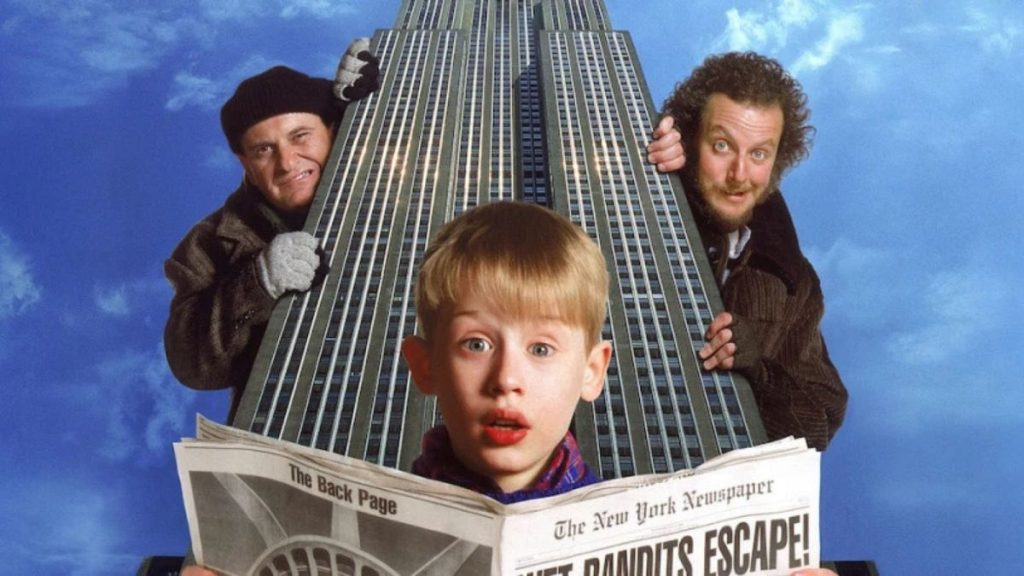Macaulay Culkin, the prodigious child star who catapulted to international fame with his iconic role as Kevin McCallister in the beloved holiday classic “Home Alone,” has experienced a life marked by both extraordinary success and significant personal struggles. His journey, far from the idyllic image projected on screen, offers a complex narrative of early fame, family disputes, substance abuse, and an eventual path toward healing and rediscovery. Culkin’s story serves as a cautionary tale about the pitfalls of child stardom and the importance of navigating the tumultuous waters of Hollywood with a strong support system and a clear sense of self.
Culkin’s meteoric rise began in the late 1980s, with roles in films like “Uncle Buck” showcasing his comedic timing and natural charisma. However, it was his portrayal of the resourceful and mischievous Kevin, left to defend his home from bumbling burglars in “Home Alone” (1990) and its sequel “Home Alone 2: Lost in New York” (1992), that cemented his status as a global phenomenon. The films’ immense popularity brought Culkin unprecedented fame and fortune, but it also placed immense pressure on a young boy thrust into the unrelenting spotlight of Hollywood. The pressures of constant media attention, demanding schedules, and the weight of expectations contributed to a challenging environment that would ultimately shape the trajectory of his life.
Behind the scenes, Culkin’s family life was far from the picture of domestic bliss. His parents, Kit and Patricia Culkin, became embroiled in a bitter custody battle, fueled in part by control over Macaulay’s burgeoning fortune. This public and acrimonious dispute not only created a deeply stressful environment for the young actor but also exposed him to the harsh realities of the entertainment industry’s often exploitative nature. The legal wrangling and familial discord took a significant toll on Culkin, contributing to his decision to withdraw from acting at the age of 14, a move that shocked many in Hollywood. This retreat marked the beginning of a period of personal struggles and a search for normalcy away from the relentless glare of the public eye.
The years following Culkin’s departure from acting were marked by periods of relative obscurity interspersed with sporadic appearances and attempts to redefine his public image. He struggled with substance abuse and faced legal troubles, further complicating his journey toward self-discovery. His highly publicized friendship with Michael Jackson, and subsequent testimony in Jackson’s 2005 trial, also added another layer of complexity to his public persona. These experiences, while undoubtedly difficult, ultimately contributed to Culkin’s evolving understanding of himself and his place in the world. He began to explore different creative avenues, including music and writing, as a means of self-expression and healing.
In recent years, Culkin has experienced a resurgence of sorts, embracing a more grounded and authentic approach to his career and public life. He has ventured into podcasting with “Bunny Ears,” showcasing his quirky humor and introspective nature. He has also taken on acting roles in independent films and television series, demonstrating a mature and nuanced approach to his craft. This renewed engagement with the creative world reflects a conscious decision to reclaim his narrative and define himself on his own terms. Culkin’s willingness to embrace his past, both the triumphs and the tribulations, has allowed him to connect with a new generation of fans who appreciate his candidness and resilience.
Macaulay Culkin’s story is a testament to the complexities of navigating fame and fortune at a young age. It highlights the importance of strong family support, the potential pitfalls of an industry driven by profit, and the crucial role of self-discovery in overcoming adversity. While his journey has been far from straightforward, Culkin’s willingness to confront his past and embrace his present offers a powerful message of hope and resilience. His story serves as a reminder that even in the face of extraordinary challenges, it is possible to find a path toward healing, self-acceptance, and a renewed sense of purpose. His evolution from child star to a more grounded and introspective artist demonstrates that the narrative of one’s life is never truly finished, but rather a continuous process of growth, evolution, and self-discovery. It is a story that continues to unfold, offering a compelling glimpse into the complexities of fame, the challenges of personal growth, and the enduring power of the human spirit.














